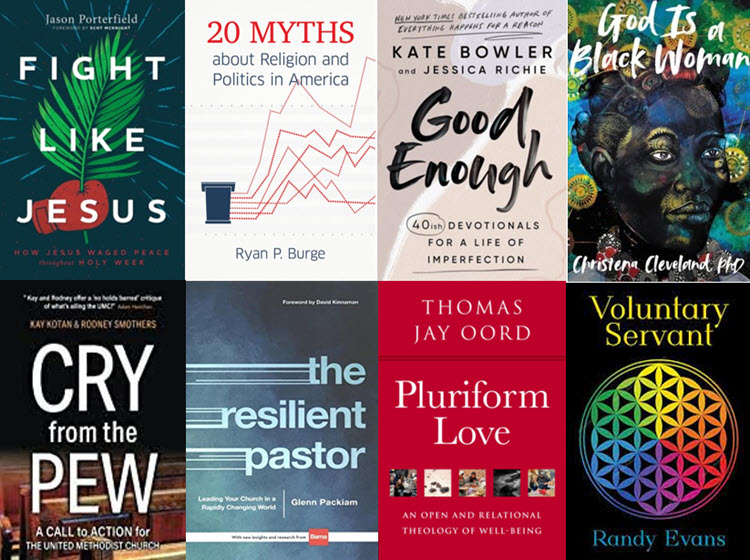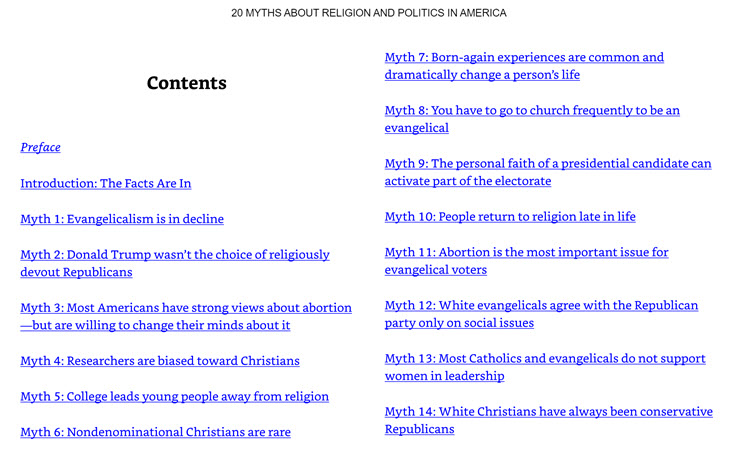The best new books I’ve read in the last month are

- (5+) 20 Myths About Religion and Politics in America by Ryan P. Burge (Fortress Press, 2022)
- (5.0) Fight Like Jesus: How Jesus Waged Peace Throughout Holy Week by Jason Porterfield (Herald Press, 2022)
- (4.5) Good Enough: 40ish Devotionals for a Life of Imperfection by Kate Bowler and Jessica Richie (Convergent, 2022)
- (4.5) God is a Black Woman by Christena Cleveland (HarperOne, 2022)
- (4.0) The Resilient Pastor: Leading Your Church in a Rapidly Changing World by Glenn Packiam (Baker Books, 2022)
- (4.0) Cry from the Pew: A Call to Action for The United Methodist Church by Kay Kotan and Rodney Smothers (Market Square Publishing, 2022)
- (4.0) Pluriform Love: An Open and Relational Theology of Well-Being by Thomas Jay Oord (SacraSage, 2022)
- (3.0) The Voluntary Servant: A Volunteer Handbook by Randy Evans (Little Traverse Press, 2022)
20 Myths About Religion and Politics
Ryan P. Burge is an American Baptist pastor, co-founder and frequent contributor to Religion in Public, and assistant professor of political science at Eastern Illinois University. I first learned about and began following him on Twitter, a platform where is now widely known for prolific content creation especially in the area of charts and graphs exploring trends in American religion. One of those tweets led to my first mention of his work here at So What Faith back in 2019: Mainline: The 5%? Then, last year, I included his first book in my May edition of Great New Books, rating The Nones: Where They Came From, Who They Are, and Where They Are Going 4.5/5.
Throughout my adult life I’ve experienced myth after myth about American Christianity presented as fact by wide ranging presenters. In the current information age, it is deeply troubling that many of these myths continue to go unchallenged. Burge’s new book is more than a must read; 20 Myths About Religion and Politics in America is a book you need read, discuss, and promote. It is a book that uses data not merely to debunk common myths, but also to explain what the data means. And, it is a book that is written for a broad audience, which means Burge’s robust statistical analysis is presented in ways everyone can understand.
For a quick book into the book see the screenshot below of part of its table of contents and check out my post from earlier this week: Lifelong Retention: a Religious Challenge.
